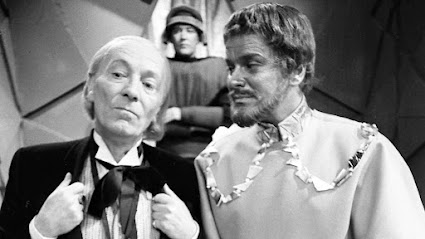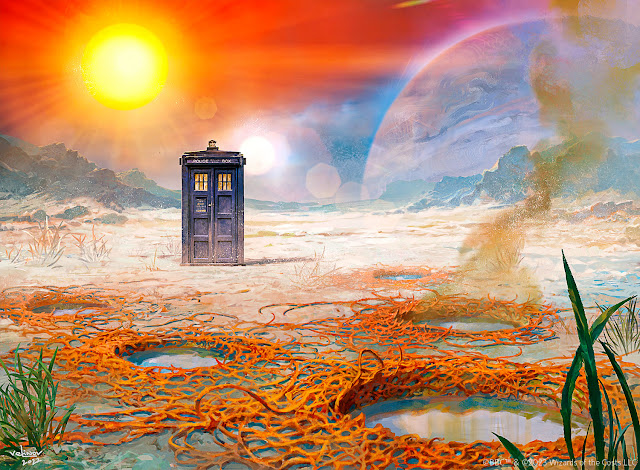The Savages [TV/1966.5.28 ~ 6.18]
★★★☆☆
I'll never get over Doctor Who's ability to make even the simplest (and sometimes cliched) sci-fi premises something special. Cultural eliticism and oppression are very familiar topics to the modern mind, and yet The Savages still manages to portray a world divided by scientific technology so successfully. There's something terribly clinical about the shut-off, sterile futuristic city the Doctor and co. initially find themselves in. The light guns, although non-fatal as far as the viewer can tell from the serial, have an effect on their victims that make their shuddering, instinctive reactions of pain more effective than the usual blood, shouts and tears. Even the styrofoam-and-wood machines of the vitality extractor feel extremely real, and you get a sense of fear for whoever ends up as the subject. If there's one thing The Savages does very well, it's worldbuilding.
I suppose this has quite a few similarities to The Myth Makers, in both the fact that they're companion departure serials and that they're completely missing from the archives, and therefore are barely even talked about. It's a shame, because this is a fascinating example of the William Hartnell era of Doctor Who killing two birds with one stone: at once, a four-parter full of futuristic guns and plenty of suspense as well as a morality play teaching kids about the importance of human conscience in the advancement of science. Plus, it's almost entirely worth it for someone else playing the First Doctor alone! Frederick Jaeger has a fun time sending Hartnell up to the high heavens while the leading man lies on a table unconscious — and while we don't have any video clips of it, I'm pretty sure Jaeger was smirking in a shot or two.
*:・゚✧*:・゚
Considering its all-but-forgotten reputation, The Savages is very entertaining. Lots of fun to be had with the world itself, the characters, the entertaining moral dilemma, as well as a fitting sendoff for personal favorite First Doctor companion Steven Taylor. His becoming leader of an emerging society feels right, and doubly so because I've always interpreted him as someone who's looking for a purpose. When he's met with an unexpected nomination and the Doctor's subsequent endorse, his first reaction is not to protest but to ask (to others and to himself) if he's worthy of such a role. If there's one companion that's had significant growth over their travels with the old man, it's Steven.





Comments
Post a Comment